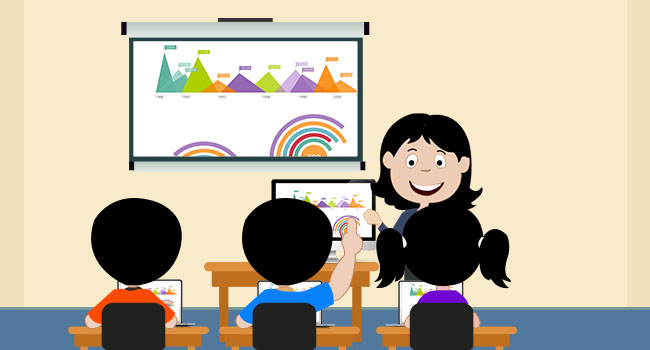
In today’s digital age, technology has become an integral part of the educational landscape, revolutionizing traditional teaching methods and empowering educators to enhance student learning experiences. From interactive whiteboards to immersive virtual reality simulations, innovative tech tools offer educators unprecedented opportunities to engage, inspire, and educate their students.
Enhancing Classroom Interactivity
One of the most significant benefits of technology in education is its ability to enhance classroom interactivity. Interactive whiteboards, for example, enable teachers to create dynamic presentations, incorporate multimedia content, and facilitate collaborative learning experiences. By encouraging active participation and fostering dialogue, these tech tools promote deeper understanding and retention of concepts among students.
Personalized Learning Experiences
Technology also facilitates personalized learning experiences tailored to individual student needs and preferences. Adaptive learning platforms use algorithms to assess student performance and provide personalized recommendations for further study, allowing educators to differentiate instruction and support diverse learning styles. By catering to each student’s unique strengths and challenges, technology helps maximize academic achievement and foster a culture of inclusivity in the classroom.
Expanding Access to Educational Resources
The internet has transformed education by providing access to a vast array of educational resources and learning materials. Online libraries, digital textbooks, and open educational resources (OERs) offer educators unprecedented access to high-quality content across a wide range of subjects and disciplines. This wealth of resources not only enriches classroom instruction but also empowers educators to cultivate a culture of lifelong learning among their students.
Facilitating Collaborative Learning
Technology enables collaborative learning experiences that transcend geographical boundaries and cultural differences. Virtual classrooms, video conferencing tools, and online collaboration platforms connect students and educators from around the world, fostering cross-cultural understanding and global citizenship. By facilitating collaborative projects and group discussions, technology promotes critical thinking, communication, and teamwork skills essential for success in the 21st-century workforce.
Engaging Immersive Learning Experiences
Immersive technologies such as virtual reality (VR) and augmented reality (AR) offer educators powerful tools to create engaging and immersive learning experiences. VR simulations allow students to explore virtual environments, conduct scientific experiments, and embark on virtual field trips, bringing abstract concepts to life and enhancing comprehension. AR applications overlay digital content onto the physical world, enabling interactive storytelling, historical reenactments, and hands-on learning experiences that captivate students’ imaginations.
Empowering Professional Development
Technology plays a crucial role in empowering educators through professional development opportunities and ongoing training initiatives. Online courses, webinars, and virtual workshops provide educators with access to the latest research, best practices, and instructional strategies, allowing them to continually refine their teaching skills and stay abreast of emerging trends in education. By investing in educator development, technology fosters a culture of continuous improvement and excellence in teaching.
In conclusion, as technology continues to evolve, its impact on education will only grow stronger, empowering educators to transform teaching methods and unlock the full potential of their students. By embracing innovative tech tools and leveraging digital resources, educators can create dynamic, personalized, and engaging learning experiences that prepare students for success in an increasingly interconnected and technologically driven world. As we look to the future, the integration of technology in education will remain a cornerstone of effective teaching and learning practices.
The author is the CEO, Director, and Co-Founder at Appx















